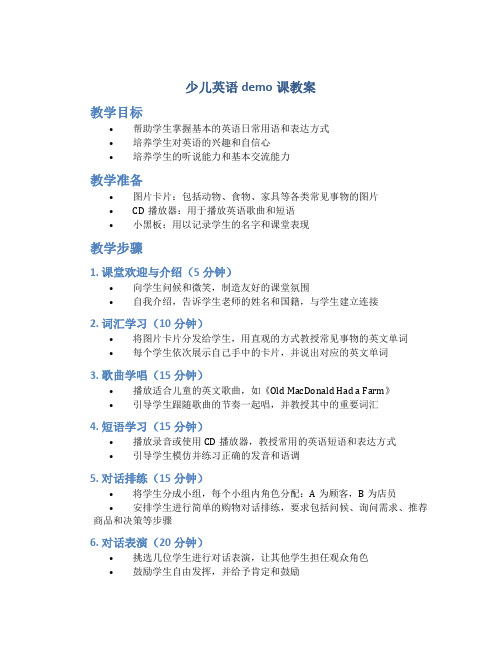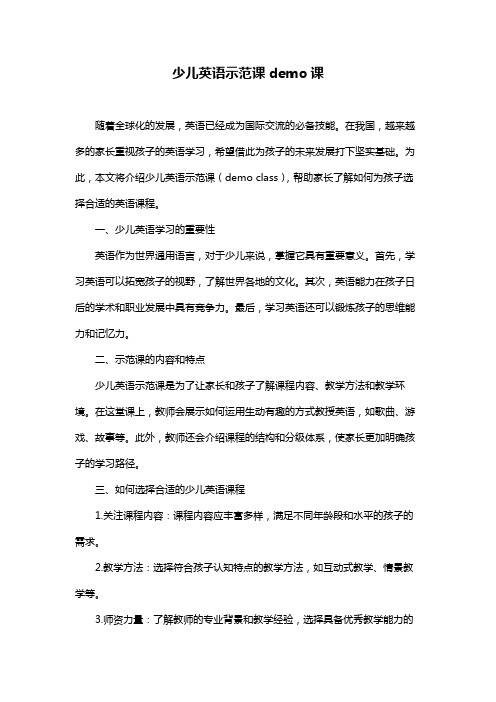Drama Demo英文戏剧演示课
Unit 1 --Introduction to English Drama

Oedipus Rex 俄狄浦斯王
Euripides
Euripides was the most unique of the three great tragedians. He was the first tragedian to meld tragedy with comic elements to create tragicomedies Euripides wrote mainly about women in such plays as Andromache安德洛马刻, Medea美狄亚, and Trojan Women特洛伊妇女 . He was more of a realist than Aeschylus and Sophocles, concerned with conflicts. ―英 雄悲剧”结束了 His characters are less heroic, more like ordinary people. He may be called the first writer of ―problem plays‖.日常生活为题材 He was a friend of Socrates and the intellectuals, but the people who flocked the performances often found him disturbing. Aristotle said of him, ―if a bad manager in all other points, Euripides is at least the most tragic of the poets.‖ In the 19th century, the English poetess Elizabeth Browning called him ―Euripides the human‖.
costume grama(课前演讲の古装剧英文PPT)

--------producer :Angel
Classifica)
• Historical documentary dramas (历史剧) • Time travel dramas (穿越剧) • Palace fighting dramas (宫斗剧)
Curb the violent and assist the weak 除暴安良
God plays
(神话剧)
God plays (神话剧)
The pursuit of being free from care 对无忧无虑的追求
Historical documentary dramas (历史剧)
古代生活
grow vegetables and water flowers 种菜浇花
Self delusion
自我幻想
Childes,
in costume dramas, overthrow cities and ruin states 剧 中 有 公 子 倾 国 又 倾 城
苏苏
小 九
Escapism
Fairy latern dramas(仙侠剧)
• Martical arts dramas (武侠剧)
• God plays (神话剧)
Martical arts dramas
(武侠剧)
Jin Yong
Gu Long
Liang Yu Sheng
Martical arts dramas
(武侠剧)
(宫斗剧)
Set imperial power struggles as the main clue 以皇权斗争为主线
Gorgeous costumes
英语教学试听DEMO课

LOGO
What should we do?
1.亲和有激情,同时不要过于兴奋。注重外表和着装,不要 戴复杂的首饰。
2.放松心情,充满自信 3.发音和语调: 发音标准是当一名少儿英文教师的基本条件。发音问题很难
一时纠正,一个发音不好的老师会影响孩子的一生。 4.与学生的互动: 教师一言堂是试讲中的大忌。学生和教师的比例应是7:3。 肢体、眼神 5.善用TPR教学法
LOGO
四、Production
LOGO
五. Ending sing Goodbye Teacher
LOGO
Sum Up
LOGO
DEMO课的注意事项
❖ 最佳时间为40分钟左右 ❖ 知识要点:层次分明,重点突出 ❖ 教具火爆 ❖ 互动:多 ❖ 板书设计:新颖、公整、布局合理
LOGO
DEMO示范课
DEMO课的含义及作用
全英文授课、完 整句子呈现
DEMO课是demonstration的缩写。教学 TPR Demo示范课融合了少儿英语的教学理念、教
学方法以及教学步骤,并根据课堂的需要展示 一些儿歌、教学口令、课堂游戏等教学内容以 达到体现教学风格、活跃课堂气氛的目的。
DEMO课凭借丰富的教学内容、活跃的课堂氛 围以及科学的教学理念来吸引小朋友和家长, 从来达到留住生源的目的。
LOGO
While - Demo
LOGO
DEMO课的教学流程
一.GREETING say hello self-introduction
二.WARMING UP songs & chants
三.PRESENTATION 1. lead in:pictures、actions、sounds 2.Drill & Practice:games or activities
少儿英语demo课教案

少儿英语demo课教案教学目标•帮助学生掌握基本的英语日常用语和表达方式•培养学生对英语的兴趣和自信心•培养学生的听说能力和基本交流能力教学准备•图片卡片:包括动物、食物、家具等各类常见事物的图片•CD播放器:用于播放英语歌曲和短语•小黑板:用以记录学生的名字和课堂表现教学步骤1. 课堂欢迎与介绍(5分钟)•向学生问候和微笑,制造友好的课堂氛围•自我介绍,告诉学生老师的姓名和国籍,与学生建立连接2. 词汇学习(10分钟)•将图片卡片分发给学生,用直观的方式教授常见事物的英文单词•每个学生依次展示自己手中的卡片,并说出对应的英文单词3. 歌曲学唱(15分钟)•播放适合儿童的英文歌曲,如《Old MacDonald Had a Farm》•引导学生跟随歌曲的节奏一起唱,并教授其中的重要词汇4. 短语学习(15分钟)•播放录音或使用CD播放器,教授常用的英语短语和表达方式•引导学生模仿并练习正确的发音和语调5. 对话排练(15分钟)•将学生分成小组,每个小组内角色分配:A为顾客,B为店员•安排学生进行简单的购物对话排练,要求包括问候、询问需求、推荐商品和决策等步骤6. 对话表演(20分钟)•挑选几位学生进行对话表演,让其他学生担任观众角色•鼓励学生自由发挥,并给予肯定和鼓励7. 结课总结(5分钟)•对本堂课的内容进行总结回顾,强调学生的学习成果和进步•表扬学生的积极参与和表现,鼓励学生继续努力学习英语教学延伸•学生可以编写小小剧本,自行排练并表演给父母或其他班级展示•鼓励学生在课外时间多听英文歌曲,提高听力和语感•给学生更多机会进行英语口语练习,如组织班级英语角活动教学评估•观察学生在课堂上的表现和参与程度•检查学生对课堂所学内容的掌握情况,如对图片卡片和短语的记忆和运用•结合学生对话表演的情况,评估学生的口语表达能力和交流能力总结通过本堂少儿英语demo课教案的设计与实施,可以帮助学生掌握基本的英语日常用语和表达方式,培养学生对英语的兴趣和自信心。
少儿英语示范课demo课

少儿英语示范课demo课随着全球化的发展,英语已经成为国际交流的必备技能。
在我国,越来越多的家长重视孩子的英语学习,希望借此为孩子的未来发展打下坚实基础。
为此,本文将介绍少儿英语示范课(demo class),帮助家长了解如何为孩子选择合适的英语课程。
一、少儿英语学习的重要性英语作为世界通用语言,对于少儿来说,掌握它具有重要意义。
首先,学习英语可以拓宽孩子的视野,了解世界各地的文化。
其次,英语能力在孩子日后的学术和职业发展中具有竞争力。
最后,学习英语还可以锻炼孩子的思维能力和记忆力。
二、示范课的内容和特点少儿英语示范课是为了让家长和孩子了解课程内容、教学方法和教学环境。
在这堂课上,教师会展示如何运用生动有趣的方式教授英语,如歌曲、游戏、故事等。
此外,教师还会介绍课程的结构和分级体系,使家长更加明确孩子的学习路径。
三、如何选择合适的少儿英语课程1.关注课程内容:课程内容应丰富多样,满足不同年龄段和水平的孩子的需求。
2.教学方法:选择符合孩子认知特点的教学方法,如互动式教学、情景教学等。
3.师资力量:了解教师的专业背景和教学经验,选择具备优秀教学能力的师资团队。
4.学习环境:环境舒适、设施齐全的学习环境有助于孩子更好地投入英语学习。
5.口碑和评价:参考其他家长和孩子的评价,了解课程的真实情况。
四、家长在孩子英语学习中的角色1.激发孩子学习兴趣:家长可以通过陪伴学习、参与课堂活动等方式,激发孩子对英语的兴趣。
2.监督学习进度:家长应关注孩子的学习进度,适时调整学习计划。
3.创设语言环境:家长可以为孩子营造一个良好的英语学习氛围,如看英文动画片、听英文歌曲等。
4.鼓励与表扬:在孩子学习英语的过程中,家长应给予充分的鼓励和表扬,增强孩子的自信心。
五、总结少儿英语示范课是家长了解英语课程的重要途径。
通过选择合适的课程,家长可以为孩子提供优质的教育资源,助力孩子英语学习。
同时,家长在孩子英语学习过程中的陪伴和引导也至关重要。
英语PPT教学课件之“英语戏剧研究与排演”课程纲要

第一单元
英美话剧基本介绍、天性释放、方向选择
第二单元
舞台表达 表演与想象力
戏剧排练及表演
第三单元
第四单元
学生为主导,完成《百万英镑》表演
课程评价
1. 最终舞台表现 2.开放性研究成果: 导演札记,改编剧本,角色感悟,表演反思
Drama
教学目标:
1.
通过积极参与3 Acting it out!
Fog
---by Bill Lowe
The End!
附:舞台表演具体评价标准主要参考以下方面:
1 2 3 4 Comments
Memorization Voice Projection and Articulation—were they easy to understand? Movement on Stage—did they seem comfortable and confident? Cooperation of Ensemble—did they work well with each other? Technical Preparation—did they have all the sets, props, and costumes they needed?
课程内容:
1. 基于以前课程内容现加入(导演、场务、美工)的专业知识。 导演组: 完整构思,演员挑选,舞台控制, 排练进度 场务组:道具制作, 造型设计, 音乐切换 演员组:台词演绎, 肢体语言,面部表情 大学本科教材: 《戏剧导演本科教程》中国戏剧出版社 《戏剧导演》中国戏剧出版社 《演员的自我修养》华中科技大学出版社: 2. 基于以前课程中的活动,调整或创设新的表演任务。 3. 在活动中加入了反思环节,督促学生及时记录,为后面的论文和 表演打下基础。 4. 在评价方案中增加了相应的论文写作任务。
英语戏剧课的无限魅力

英语戏剧课的无限魅力作者:杨洁来源:《考试与评价》2020年第12期【摘要】从英语学习的认知规律来看,学生对于感兴趣的话题,用表演的形式开展学习记忆最为深刻,因此英语戏剧课就非常符合低年级学生的年龄特甜,能够培养他们对英语学习的兴趣。
本文通过案例拆解,分析了开展英语戏剧课三种不同形式和需要注意的关键事项。
【关键词】英语戏剧游戏创作“戏剧”常以多元的面貌在我们生活与教育的领域中出现,从最原始的戏剧游戏,到各类庆祝活动上的戏剧表演,乃至自编自导的微电影、短视频,已经成为大家生活中不可缺少的元素。
人总是能通过自发性的扮演方式来表达自己对外在世界的理解与感觉,因此,在过程中,他必须运用逻辑推理与直觉想象的思考来内化个人的知识,以产生美感的喜悦。
在表演中加上华丽的道具、特殊的音效及灯光的烘托,留下的感受就更为深刻,因此在英语课上使用学戏剧演戏剧的方式,能帮助学生牢固记忆所学材料,同时对人格的成长、沟通能力、问题解决能力和创造力的提升都有很大的帮助。
当学生进入角色,对语言感同身受时,他们的社会认知能力和同理心也得到提升。
戏剧课通常分为三大类,一类是戏剧游戏,二是以戏剧的形式为主的即兴创作,三是以剧场的形式开展的表演活动。
一、戏剧游戏(Dramatic Play)这是一种互动游戏,学生们分成小组去应接组长提出的问题,用肢体律动、五官感受、情境对话来回应提问者。
在团体的互动活动中,每位学生必须去面对并且解决故事人物或自己所面临的问题和情境,使用英语,体验生活,了解人物之间的关系,建立自信,进而成为能主动创作和表演的团队成员。
例如在warm-up环节,组长坐在中间,请每个成员介绍自己。
组长说I will go to the supermarket. I want to take Li Ming to the supermarket. 组长负责喊小组成员的名字,被喊到名字的人就要站起来跟着组长走。
组长依顺时针顺序继续走,喊到第二、三个人的名字的时候,听到的人就要跟着走。
英文戏剧课程设置方案模板

I. Course OverviewThe English Drama Course is designed to provide students with a comprehensive understanding of drama as an art form and its application in the English language. Through interactive and creative activities, students will develop their English speaking, listening, reading, and writing skills, as well as enhance their confidence and teamwork abilities. This course is suitable for students of all levels and will be conducted in an engaging and supportive environment.II. Course Objectives1. To improve students' English language proficiency through practical application.2. To develop students' critical thinking and creative problem-solving skills.3. To enhance students' confidence and public speaking abilities.4. To foster teamwork and collaborative skills through group projects.5. To expose students to various forms of drama and theater, including plays, improvisation, and stagecraft.III. Course StructureThe course will be divided into several modules, each focusing on a different aspect of drama and English language skills:1. Introduction to Drama and Theater (Weeks 1-2)- Brief history and evolution of drama.- Basic elements of drama: character, plot, setting, theme, and conflict.- Introduction to different genres: comedy, tragedy, drama, and musicals.2. Improvisation and Role Play (Weeks 3-4)- Warm-up exercises to enhance focus and creativity.- Improvisation techniques to develop quick thinking and adaptability.- Role play activities to practice character development and dialogue delivery.3. Script Analysis and Character Study (Weeks 5-6)- Analysis of selected scenes from classic plays.- Character study: understanding the motivations and development of characters.- Discussion on themes and messages conveyed through the plays.4. Stagecraft and Performance Skills (Weeks 7-8)- Basic stagecraft techniques: movement, voice projection, and facial expressions.- Group performance exercises to practice teamwork and collaborative skills.- Rehearsal and final performance of a selected scene or play.5. English Language Enhancement (Throughout the Course)- Integration of language learning with drama activities.- Focus on vocabulary building, pronunciation, and fluency.- Regular reading and writing assignments to reinforce language skills.IV. AssessmentThe course will be assessed through a combination of the following methods:1. Participation and Engagement: Active participation in class discussions, activities, and performances.2. Role Play: Performance evaluations based on character development, dialogue delivery, and overall impact.3. Group Projects: Assessment of teamwork and collaborative skills through group activities.4. Written Assignments: Short essays, reflections, and character analyses.5. Final Performance: Evaluation of overall performance, including stagecraft, language skills, and teamwork.V. Course Materials- A comprehensive coursebook tailored to English drama and theater.- Selected plays and scripts from classic and contemporary playwrights.- Handouts and supplementary materials for class activities and discussions.VI. Time Allocation- Each module will be taught for approximately 2-3 weeks, with a total of 8 weeks for the full course.- Classes will be held twice a week, with each session lasting 1.5 hours.VII. ConclusionThe English Drama Course aims to provide students with a unique and engaging way to learn English. By combining the art of drama with language skills, students will not only improve their Englishproficiency but also gain valuable life skills such as teamwork, confidence, and creativity.。
- 1、下载文档前请自行甄别文档内容的完整性,平台不提供额外的编辑、内容补充、找答案等附加服务。
- 2、"仅部分预览"的文档,不可在线预览部分如存在完整性等问题,可反馈申请退款(可完整预览的文档不适用该条件!)。
- 3、如文档侵犯您的权益,请联系客服反馈,我们会尽快为您处理(人工客服工作时间:9:00-18:30)。
A drama,or a play, is a piece of writing that is presented almost exclusively through dialogue. Plays are written as lines of dialogue in the form of a script.
Cowards die many times before their deaths; The valiant never taste of death but once. Of all the wonders that I yet have heard, it seems to me most strange that men should fear; seeing that death, a necessary end, will come when it will come. (Julius Caesar Act II, Scene II) Cowards go through a death-like experience many times before they die. Brave men experience it only once. Of all the inexplicable things that I have ever heard it seems to me that the strangest is that men should fear death, seeing that , as it must inevitably happen, it will come when it comes. Now is no time to think of what you do not have. Think of what you can do with that there is. (Ernest Hemingway, The Old Man and the Sea) I may not be as strong as I think, but I know many tricks and I have resolution. (Ernest Hemingway, The Old Man and the Sea)
Understanding Drama
Drama is the specific mode of narrative, represented in performance. Drama refers to “the dramatic branch of literature; the dramatic art”.
There is nothing either good or bad, but thinking makes it so.(Hamlet Act ΙΙ, Scene ΙΙ) Nothing is either good or bad: it only appears so in our own minds. I dare do all that may become a man; Who dares do more is none. (Macbeth Act I, Scene VII) I dare to do everything that it’s appropriate for a man to do. Whoever dares to do more isn’t a man. If chance will have me king, why, chance may crown me. (Macbeth Act I, Scene III) If fate wants me to be king, fate may crown me without my having to do anything.
What is drama?
The elements of drama.
Why should we study drama?
Learning Objective: Get to know concepts relevant to Drama. Identify the function of various dramatic elements.
WHY DRAMA?
One must let the play happen to one; one must let the mind loose to respond as it will, to receive impressions, to sense rather than know, to gather rather than immediately understand. --- EDWARD ALBEE, National Observer, April 5, 1965 The most effective moments in the theatre are those that appeal to basic and commonplace emotions - love of woman, love of home, love of country, love of rights, anger, jealousy, revenge, ambition, lust, and treachery. --- CLAYTON HAMILTON, Theory of the Theatre.
After crashing the Capulet party, Tybalt goes after the Montague crew and kills Mercutio. To avenge his friend, Romeo duels with and kills Tybalt - Juliet’s cousin.
It is a work of literature or a composition that describes life and human activity by means of presenting various actions of, and dialogue between a group of characters. The word “drama” comes from the Greek word “dran”. Drama is defined in this modern usage as “a genre of narrative fiction or semi-fiction intended to be more serious than humorous in tone” which focuses on in-depth development of realistic characters who must deal with realistic emotional struggles.
ELEபைடு நூலகம்ENTS OF DRAMA
The thought/theme/ideas of a production Action and plot Characters/actors Language/words Staging
Romeo and Juliet : Act 3 , Scene 1 Romeo: the son of the house of Montague and the play’s male protagonist. Tybalt: a cousin of Juliet,belongs to the house of Capulet. Mercutio:a kinsman of Escalus(the ruling Prince of Verona), and a friend of Romeo. Benvolio: Romeo’s cousin and best friend.
HOMEWORK
Thank you
Drama’s Gifts
Creativity in Problem Solving Become Another Communication Tolerance and Empathy Understand Ideas in History and Current Events
Give thy thoughts no tongue, nor any unproportioned thought his act. (Hamlet Act Ι,Scene ΙΙΙ) Don’t say what you’re thinking nor do the first thing that comes into your mind. Rich gifts wax poor when givers prove unkind. (Hamlet Act ΙΙΙ, Scene Ι) Treasured gifts become worthless when the giver becomes unloving.
